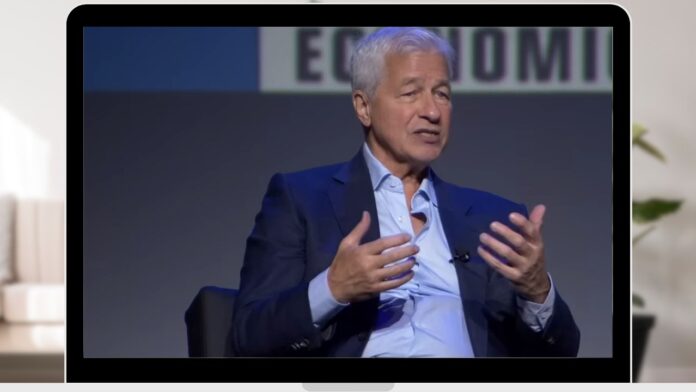Many of us are eager to hear the insights of JP Morgan’s CEO, Jamie Dimon, and a recent interview shed some light on his views. In a surprising conversation with Bloomberg TV, Dimon, known for his candid opinions, discussed a range of topics including interest rates, the Russia-Ukraine conflict, artificial intelligence, and the future of work.
Dimon, who has previously expressed concerns about short sellers and criticized remote work, offered a cautionary note about the possibility of further increases in interest rates. However, he doesn’t appear overly anxious about this potential scenario.
Read More: Irfan Pathan Predictions in World Cup 2023
During the interview, Dimon discussed the possibility of interest rates reaching 7%, even suggesting that there are factors that could push rates even higher. However, he didn’t express significant concern about higher rates solely for the sake of it.
What really worries Dimon is the specter of stagflation—a scenario characterized by sluggish economic growth coupled with high unemployment. When asked about the potential ripple effects of higher rates and the risk of stagflation, Dimon remained composed and confident.
He stated, “I’m not concerned about JP Morgan. We can handle rates at 7%, and we can manage even if rates return to 2%.” When asked if the bank could weather an 8% rate, he replied with a simple “Yes, we can handle that as well.” This assurance underscores his confidence in the bank’s ability to navigate different interest rate scenarios.
Two Key Economic Warnings from Jamie Dimon
Dimon reiterated his concern about the economic dangers of stagflation, a situation characterized by low growth, high interest rates, and widespread economic struggles—a scenario he views as the worst-case scenario.
However, when assessing the future of the U.S. markets, it’s not just stagflation that warrants our attention. The current U.S. deficit has reached an unprecedented high, hovering around $1.5 trillion, and the country continues to spend rapidly, particularly in foreign conflicts.
Read Also: Is Arthur Ashe Stadium Sinking?
Dimon pointed out that given the current deficit, we should brace ourselves for at least some market volatility. This financial landscape becomes even more complex when we consider the ongoing tensions between Russia and Ukraine, as well as escalating rhetoric and disputes with China. A smooth and peaceful resolution appears elusive without significant U.S. involvement.
Dimon also addressed the impact of technology on the workplace, expressing a positive view. He emphasized that technological advancements have historically been beneficial and that people should not be overly concerned about technology replacing jobs. He highlighted the potential for longer, healthier lives due to technological advancements and predicted that future generations might enjoy shorter workweeks, potentially as short as three and a half days a week.














![Technical Aspects of 844 Area Code in 2024 [Detail Guide] 844 Area Code](https://articleify.com/wp-content/uploads/2024/01/844-Area-Code-150x150.jpg)














